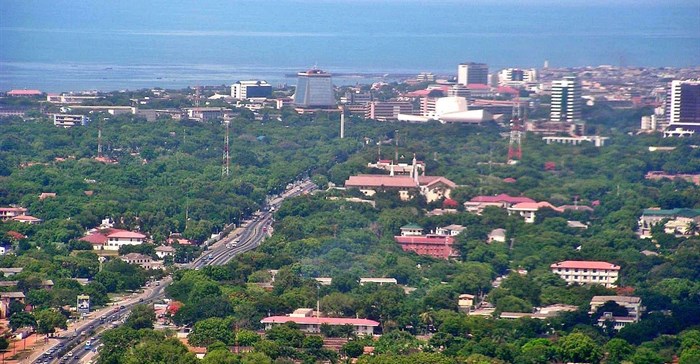
Top stories






More news




The report highlights some of the major economic challenges that Ghana has faced in recent years, including “the depreciation of the Cedi, a deteriorating fiscal deficit and declining economic growth”. However, the country’s economy seems to be stabilising, reporting an economic growth rate of 8.5% in 2017 (more than double the 2016 performance of 3.7%) and a 5.4% year-on-year economic expansion in the second quarter of 2018.
Economic influencers, such as inflation and exchange rate depreciation are briefly discussed, as well as the impact that the 2017 and 2018 budgets’ tax reviews on the real estate sector might have on the sector’s growth, with a “5% cut on real estate sales tax and a tax waiver on real estate and investment trusts (REITS)”.
When looking at Ghana’s retail sector, the take-up of retail space has been weaker than expected since 2017. The report identifies financial sector challenges, lay-offs and reduced government spending, among others, as having an adverse impact on the formal retail market. Additionally, due to the fact that rents are dollarised, “high exchange rates, coupled with lowering sales patterns, have negatively impacted upon tenants’ profitability, consequently hindering the ability of retailers to effectively take-up or expand spaces in western-style malls”.
Because the exchange rates of major foreign currencies have such a significant impact on the retail market, the report indicates that the future of the sector is strongly tied to the performance of the macroeconomic indicators, such as the recently recovering Cedi’s depreciation, which holds promise for the retail market.
According to the report, Ghana’s office sector remains relatively flat as a result of the tough economic conditions, stating that “effective demand remains low, with the take-up of space ranging from 80m² to 150m².” However, the competitive advantages of Ghana’s core nodes (Ridge and Airport City), continue to drive activity within the sector, due to their preferential locations. Once again, the influential impact of the economy and the performance of the Cedi is highlighted, due to rentals being dollarised.
The report highlights the interesting observation that numerous large corporates have built, or are in the process of developing, their own head offices and are moving out of rented premises. This phenomenon is as a result of various factors, including the increase in rentals resulting from escalating clauses in the various lease agreements. A continuation in this trend is predicted, with increased vacancies within rented premises as a likely result.
According to the report’s findings, at least 41,779m² of A-grade space has been added to the existing office stock in Accra in 2018 alone, with a considerable amount of space expected to come onto the market as a result of the collapse of seven banks. While rentals remain stable and fewer additional take-ups are noted, some landlords have been offering rent reductions and reviewed payment terms to retain tenants. The report anticipates that rents will fall in the next six to twelve months due to the fact that supply continues to outstrip demand.
With specific regard to Ghana’s industrial market, performance is improving, according to the report, which states that “supply increased by an estimated 103,160m² in 2016 and 130,000m² in 2017”. The report further estimates additional supply as at the third quarter of 2018 at 18,000m², available in the free zones enclave.
Rentals of between $9/m²/month – $10/m²/month are evident for high-end warehousing facilities. While, significant developments highlighted by the report include the government’s flagship “One district One factory” (1D1F) initiative which is expected to establish 275+ factories nationwide, and the 11km railway line by a private entity, which is expected to link the Tema Free Zone Enclave and other developments to the Tema Harbour. This will make the transportation of goods to the port easier and have a positive impact upon the industrial market.
The report expects the current trajectory of Ghana’s industrial sector to continue should the economic recoveries persist. Which is why, in the medium term, supply of industrial space is expected to increase with the completion of major projects.